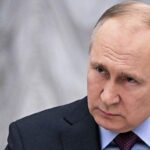
UNITED NATIONS (AP) — The U.N. Security Council extended the mandate for the 19,000-strong U.N. peacekeeping force in South Sudan for a year Tuesday, while demanding an immediate end to fighting in the country and political dialogue to advance a plan to prevent the world’s newest nation from returning to civil war.
The resolution was adopted by a vote of 13-0, with Russia and China abstaining, both calling the measure unbalanced for focusing too much on human rights in the east African nation.
U.S. Ambassador Linda Thomas Greenfield welcomed approval for the strengthened mandate for the mission, known as UNMISS, in the U.S.-sponsored resolution. She said the measure reinforces its mandate “to protect civilians, support delivery of humanitarian assistance, monitor and investigate human rights and support the peace process.”
The United States also supports the resolution, she said, “because it calls for UNMISS to strengthen its sexual and gender-based violence prevention activities, responding to the horrific sexual violence in South Sudan.”
China’s deputy U.N. ambassador, Dai Bing, criticized the United States for pushing “for inclusion of many human rights-related texts, resulting in a very unbalanced draft resolution.”
“The international community should support the country in gradually exploring a path of human rights development that is suitable for its national conditions instead of resorting to criticism or pressurization, not to mention interference in internal affairs,” he said.
Deputy Russian ambassador Anna Evstigneeva expressed regret that the resolution “did not duly reflect the positive developments in this young state” and instead “fixated on negative aspects” leaving the text “misbalanced.”
“South Sudan may indeed need assistance in building capacity to solve problems related to human rights, sexual violence, women’s empowerment, combating corruption,” she said. “However, those issues are South Sudan’s internal affair in the first place. It is our understanding that neither the Security Council nor the peacekeeping mission have proper tools to address these tasks.”
South Sudan has existed as a nation for just over a decade after winning independence from Sudan in 2011. Impatience has risen over the government’s slow implementation of a 2018 peace deal ending a five-year civil war, including the crucial work of merging once-rival armed forces. An estimated 400,000 people were killed in the civil war, and hundreds still die in intercommunal violence around the country.
The resolution recognizes the reduction in violence between parties to the 2018 peace agreement and notes “the permanent cease-fire was upheld in most parts of the country.” It welcomes current dialogue between signatory and non-signatory parties being facilitated by the Community of Sant’Egidio, a Rome-based lay Catholic group focused on service to the poor and peace-building.
But the Security Council also reiterated “its deep concern regarding the political, security, economic, and humanitarian crisis in South Sudan.”
It strongly condemned all fighting and expressed “grave concern” at increased violence between armed groups in some parts of the country. It also notes concerns over reports of the use of sexual violence “as a tactic by parties to the conflict against the civilian population in South Sudan, including use of rape and sexual slavery for the purpose of intimidation and punishment.”
The resolution “demands all parties to the conflict and other armed actions to immediately end the fighting throughout South Sudan and engage in political dialogue.”
It also reiterates the council’s “alarm about the dire humanitarian situation, the high levels of food insecurity in the country and likely famine in some areas, including an estimated 8.3 million people facing severe food insecurity, according to the World Food Program.”
The resolution strongly condemns all violations of human rights and international humanitarian law by all parties, “including armed groups and national security forces.” It also condemns the “harassment, targeting and censorship of civil society, humanitarian personnel and journalists.”
The resolution says conducting free and fair elections “will be critical for a transition toward a stable, inclusive, democratic and self-reliant state.”
It says there must be “an inclusive, transparent constitution-drafting process” before elections. And it calls on South Sudanese authorities, as required under the peace agreement, “to make immediate and concrete progress on the key milestones to facilitate a peaceful electoral process,” including adoption of a constitution.
The Security Council extended the mandate of the U.N. peacekeeping mission until March 15, 2023, and maintained its troop ceiling at 17,000 and its police ceiling at 2,101.
The mission’s first priority remains the protection of civilians under threat of physical violence. That requirement includes deterring, preventing and responding to sexual and gender-based violence “within its capacity and areas of deployment.”
The mandate also includes creating conditions to deliver humanitarian aid, supporting implementation of the peace agreement and peace process, and monitoring, investigating and reporting on human rights abuses and violations of international humanitarian law.




